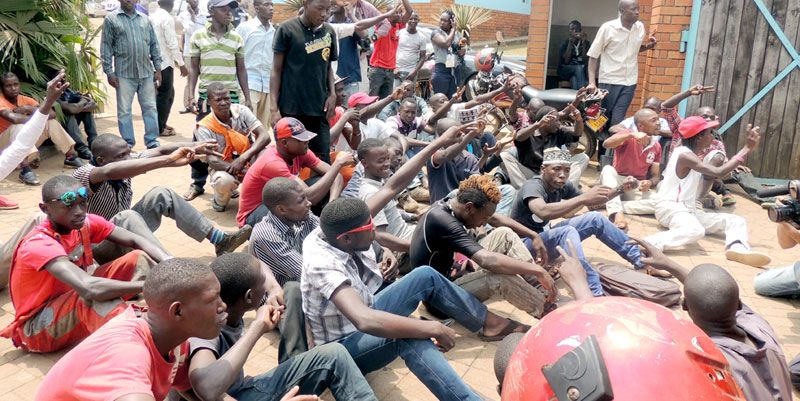
From the Outside looking in
Following the 1980 general elections, went to the bush to fight to remove the elected government of Uganda People’s Congress (UPC), of Dr. Apolo Milton Obote. Museveni’s claim for his action was that the elections had been rigged and had not, therefore, been free and fair.
On coming to power and during the-then named Organization of African Unity (OAU) summit in Addis Ababa in 1986, he addressed his fellow member Heads of State, saying that the problem of African leadership was that “of African leaders overstaying in power”. He claimed to Ugandans that his was a government of “fundamental change” in which none of that would ever take place – again.
Fast forward to 36 years, and you may not distinguish the difference of what Museveni claimed had been the wrong-doing of the Obote regime; and what he is doing now. Of course, Obote dismissed the accusations of rigging as baseless, (Ditto Museveni), especially as UPM got only one parliamentary seat – and that, not even won by its leader.
Museveni, by the account of his supervised election is now starting his 31st year in power; he is one of only a few of Africa’s longest-staying-in-power presidents. And Uganda has remained one of the “Banana Republics”, almost as he found it. By all accounts, there is no fundamental political change! Is this not a matter of double standards?
Last week’s poll has been roundly condemned by the international observers and Ugandan citizens, alike, as having been “fraudulent and did not meet the internationally accepted standards of democratic practice.”
It is at the behest of the NRM acolytes, drumming that the regular practice of elections, is a sign of democracy, despite the fact that even the last two elections have been contested at the Supreme Court for serious irregularities. The fact that the court held up the polls, is irrelevant, here.
The leader of the European Union (EU) observers, Eduard Kukan; the Commonwealth observers head, Olusegun Obasanjo; the United States’ Secretary of State, John Kerry; and even Uganda’s ConCERN head, Livingstone Ssewanyana, are all in agreement that Ugandans “deserved better”, the handling of the poll.
That the Inter-Governmental Authority on Development (IGAD) and the East African Community (EAC) observer missions justified the polls can be put to the fear of rocking the regional boat in case of violence.
Despite the 60.75% win thumped up by Museveni’s National Resistance Movement (NRM) regime, the citizens and the other participants are dismayed by the vote rigging: ballot stuffing; harassment of Opposition members and their representatives at the polling centers; pre-ticked ballot papers in favour of Museveni; blocking the Internet services access to social media; declaration of results even before the tallying; and, a horde of other irregularities. At every turn, members of the Opposition have been stymied from a free and fair participation, with the NRM and a partisan militia Police, making un-transparent accusations.
So far, the Opposition has not been allowed to make its case. The butt of the injustice has been heaped on the front-running candidate of the Forum for Democratic Change (FDC), Dr. Kizza Besigye, who within a space of a week, has been arrested and released four times.
Even by the logic of its own-released statistical figures and at a cursory glance, something is seriously wrong. The Electoral Commission (EC), registered 15, 277, 198 voters out of a population of about 36 million people. Of these 5, 575, 460 were unable to vote for reasons that may have included suspicion that it would be a waste of time, given the previous poll practices of the regime in the 2006 and 2011 elections.
So, only 9, 701, 138 people, or 63.56% people cast their votes. Of these, there were 1,051, 710 undeclared votes alongside 455, 177 invalidated votes (totaling 1,506, 887), which comes to a percentage of 11.57%.This is a whopping 15.53% of the voters who were suddenly “disenfranchised”.
Museveni “won” by 5, 617, 503 votes against Besigye’s 3, 270, 290 votes. If you add the 1, 506, 887 votes to Besigyes, as votes irregularly discounted against him, you might come to 4, 777, 277 for Besigye, only with a difference of only 960,126, a near dead heat; that is: without taking into account all the irregularities noted earlier.
If you statisticized those irregularities there is every indication that the final vote tally would have been very different. That is why there is an urgent need for a forensic audit of the votes with independent consultants present. All this would be a good reason for Besigye to be allowed an unfettered access to the declaration forms, which is not happening now.















Sunrise reporter
Leave a Comment
Your email address will not be published.